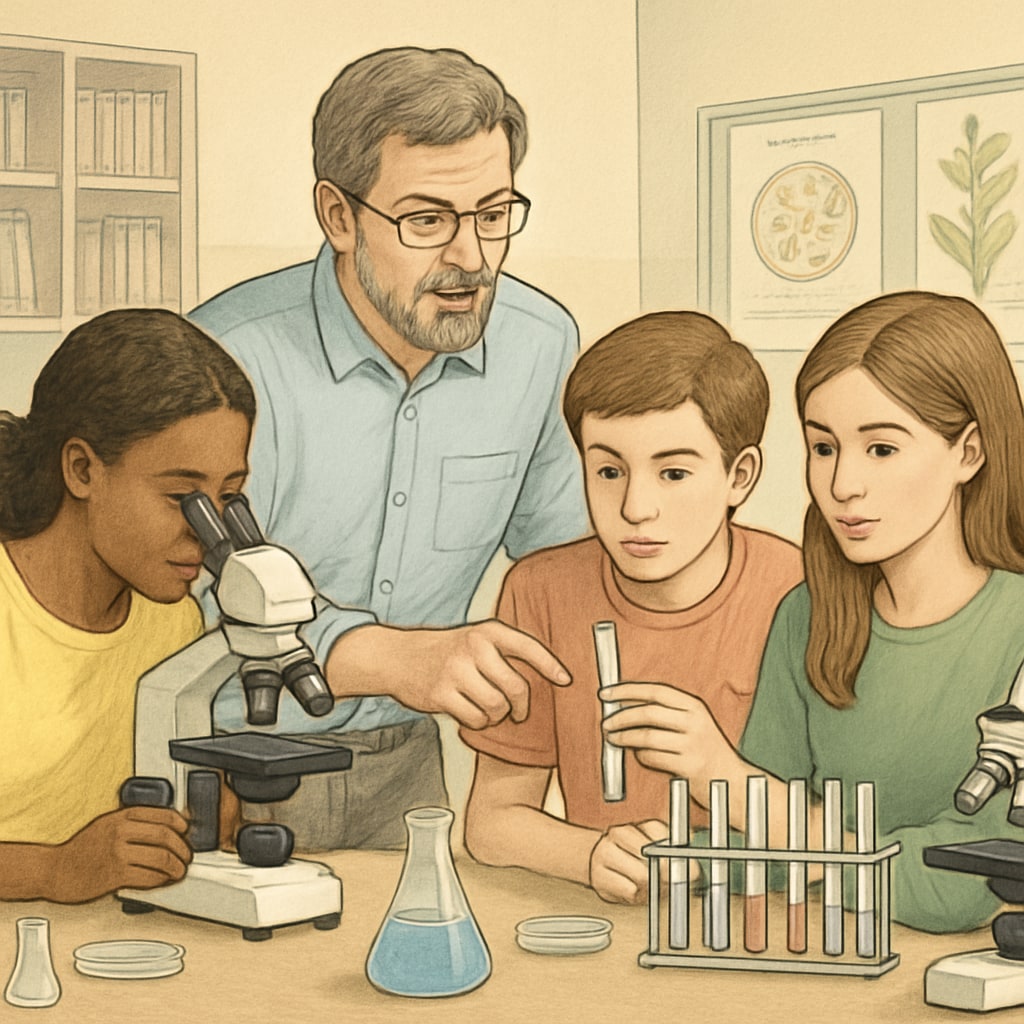The journey from a biology background to a master’s in education is an exciting yet challenging pathway for students considering a career switch. Transitioning from the lab to the classroom offers unique opportunities to blend scientific knowledge with teaching methodologies, ultimately enriching education for students of all ages. This article explores the feasibility of this transition, outlining the pathways, challenges, and prospects for biology graduates who aspire to teach.
Why Biology Students Consider Education as a Career
Biology graduates often possess a deep curiosity about the natural world and a strong foundation in scientific inquiry. However, not all biology students envision themselves spending their careers in research labs or fieldwork. Some are drawn to the idea of sharing their knowledge with others, especially younger generations. Transitioning to a master’s in education provides an opportunity to bring science to life in the classroom and inspire future scientists.
In addition, teaching offers a chance to impact society directly. Many biology students are motivated by the prospect of making science accessible to diverse audiences. Education provides a platform to simplify complex concepts, promote critical thinking, and foster a love for learning in students.

Challenges in Transitioning from Biology to Education
While the transition from biology to education is feasible, it is not without challenges. One of the primary hurdles lies in adapting to the pedagogical theories and practices that underpin effective teaching. Biology graduates, accustomed to scientific methodologies, may initially struggle with the nuances of classroom management, student engagement, and differentiated instruction.
Another challenge is meeting the prerequisites for a master’s in education program. Many institutions require applicants to have some prior experience in teaching or education-related fields. Biology students may need to gain such experience through internships, volunteer opportunities, or substitute teaching roles.
Lastly, the financial and time investment required for a master’s degree can be significant. Prospective students must weigh these factors carefully and consider scholarships, assistantships, or part-time study options to mitigate these concerns.
Opportunities and the Fusion of Biology and Education
Despite the challenges, the transition offers numerous opportunities. For instance, biology graduates bring a unique perspective to education. Their expertise in scientific inquiry and evidence-based reasoning can enhance the quality of STEM (Science, Technology, Engineering, and Mathematics) education. Schools are increasingly seeking educators who can inspire students in these critical disciplines.
Moreover, a background in biology equips graduates with strong analytical and problem-solving skills. These qualities are invaluable in the classroom, where teachers must adapt to diverse learning needs and solve instructional challenges creatively. Additionally, biology graduates can pursue specialized roles in education, such as curriculum development for science programs or even educational research.

Practical Tips for a Successful Transition
For biology students considering a master’s in education, here are some practical steps to ensure a smooth transition:
- Gain Teaching Experience: Volunteer as a tutor, participate in science outreach programs, or work as a teaching assistant to build relevant experience.
- Research Education Programs: Look for master’s programs that value interdisciplinary backgrounds and offer pathways for non-education undergraduates.
- Leverage Your Biology Expertise: Highlight your scientific knowledge as a strength during applications and interviews.
- Network with Educators: Connect with teachers and education professionals to gain insights and mentorship.
- Stay Updated on Educational Trends: Familiarize yourself with current issues in education, such as STEM initiatives and inclusive teaching practices.
By taking these steps, biology graduates can position themselves as strong candidates for education programs and prepare for a rewarding career in teaching.
In conclusion, transitioning from biology to a master’s in education is a viable pathway for those passionate about teaching. While challenges exist, the opportunities to inspire young minds and contribute to STEM education make this career switch highly rewarding. With the right preparation and mindset, biology students can successfully navigate this interdisciplinary journey and leave a lasting impact on future generations.
Readability guidance: The article uses short paragraphs, clear transitions, and lists to enhance readability. Overly long sentences and passive voice are minimized, ensuring accessibility for a broad audience.


